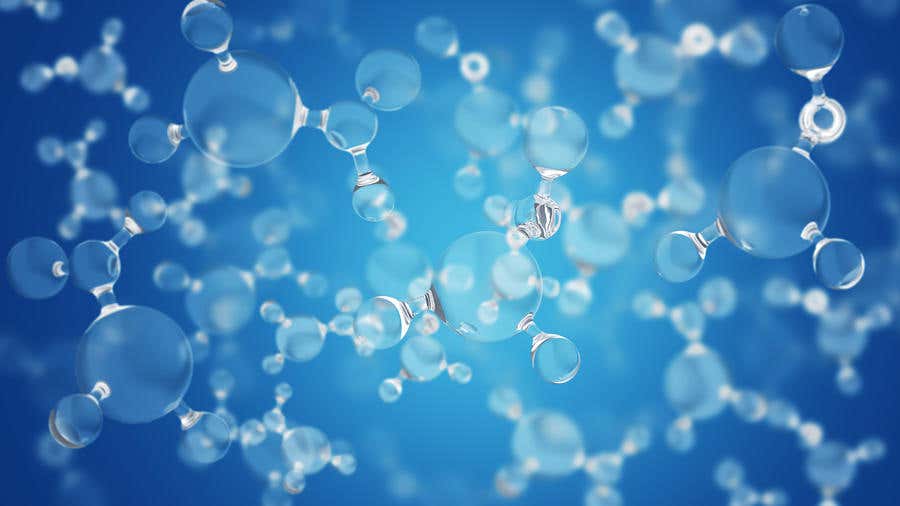New peptide-based hydrogels revolutionize skin and organ tissue repair – saving millions of lives
A jelly-like material has significant potential for on-the-spot repair of various damaged organs and tissues in the human body

Combining biomedical finesse and nature-inspired engineering, a team of scientists led by the University of Ottawa has developed a jelly-like material with significant potential for on-the-spot repair of various damaged organs and tissues in the human body.
This groundbreaking research, co-led by Dr. Emilio I. Alarcón from the uOttawa Faculty of Medicine, introduces peptide-based hydrogels capable of closing skin wounds, delivering therapeutics to damaged heart muscle, and reshaping injured corneas.
"We are using peptides to fabricate therapeutic solutions," explains Dr. Alarcón, a scientist and director at the BioEngineering and Therapeutic Solutions (BEaTS) group at the University of Ottawa Heart Institute. "The team draws inspiration from nature to develop simple solutions for wound closure and tissue repair."
Peptides are molecules found in living organisms, and hydrogels are water-based materials with a gelatinous texture, proving useful in therapeutics.
The study, published in Advanced Functional Materials and co-led by Dr. Erik Suuronen and Dr. Marc Ruel, showcases a unique approach. Most hydrogels used in tissue engineering are animal-derived and protein-based, but the new biomaterial is enhanced with engineered peptides, making it more clinically translatable.
Dr. Ruel, a full professor in the uOttawa Faculty of Medicine’s Department of Cellular and Molecular Medicine and the endowed chair of research in the Division of Cardiac Surgery at the University of Ottawa Heart Institute, highlights the study's potential impact.
"Despite millennia of evolution, the human response to wound healing remains imperfect," Dr. Ruel says. "We see maladapted scarring in everything from skin incisions to eye injuries, to heart repair after a myocardial infarction. Our team has focused on this problem for almost two decades. The publication in Advanced Functional Materials reveals a novel way to make wound healing, organ healing, and scarring after surgery much more therapeutically modulatable and optimizable for human health."
Related Stories
The ability to modulate the peptide-based biomaterial is crucial. The uOttawa-led team’s hydrogels are designed to be customizable, making the durable material adaptable for use in a wide range of tissues.
The two-component recipe can be adjusted to increase adhesivity or reduce other components depending on the specific body part needing repair.
"We were very surprised by the range of applications our materials can achieve," says Dr. Alarcón. "Our technology offers an integrated solution that is customizable depending on the targeted tissue." The study's data suggest that the therapeutic action of the biomimetic hydrogels is highly effective, and its application is simpler and more cost-effective than other regenerative approaches.
The materials are engineered in a low-cost and scalable manner, essential qualities for numerous major biomedical applications. The team also devised a rapid-screening system that allowed them to significantly reduce design costs and testing times.
"This significant reduction in cost and time not only makes our material more economically viable but also accelerates its potential for clinical use," Dr. Alarcón says.
Next steps for the research team include conducting large animal tests in preparation for tests in human subjects. So far, heart and skin tests have been conducted with rodents, and the cornea work was done ex vivo.


Part of the study's funding came from the uOttawa Faculty of Medicine’s "Path to Patenting & Pre-Commercialization" (3P), an innovation-focused approach providing researchers with the assistance needed to bring their most promising breakthroughs to the wider world.
The innovative research by the uOttawa-led team holds promise for millions of lives, offering a versatile and effective solution for tissue repair and regeneration. As they move towards clinical trials, the potential for peptide-based hydrogels to revolutionize medical treatments and improve patient outcomes is immense.
For more scientific good news stories check out our New Innovations section at The Brighter Side of News.
Note: Materials provided above by The Brighter Side of News. Content may be edited for style and length.
Like these kind of feel good stories? Get the Brighter Side of News' newsletter.
Joshua Shavit
Science & Technology Writer | AI and Robotics Reporter
Joshua Shavit is a Los Angeles-based science and technology writer with a passion for exploring the breakthroughs shaping the future. As a contributor to The Brighter Side of News, he focuses on positive and transformative advancements in AI, technology, physics, engineering, robotics and space science. Joshua is currently working towards a Bachelor of Science in Business Administration at the University of California, Berkeley. He combines his academic background with a talent for storytelling, making complex scientific discoveries engaging and accessible. His work highlights the innovators behind the ideas, bringing readers closer to the people driving progress.



